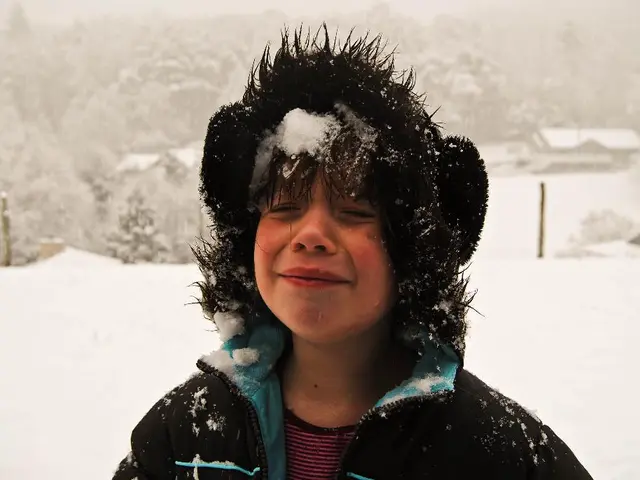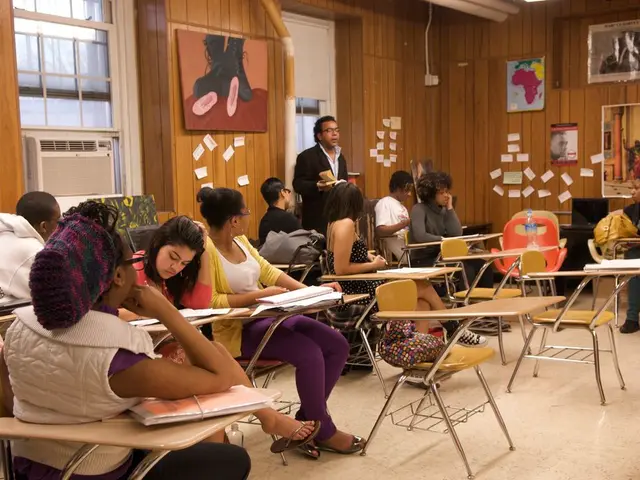Guide to Minimizing Hatred and Enhancing Empathy: Practical Steps for Cultivating Understanding and Kindness
In today's world, addressing hate effectively requires a balanced approach that safeguards free speech while preventing harm. Hate speech, a form of expression that promotes hatred, discrimination, or violence, can be detrimental to individuals and society as a whole.
One of the cornerstones of countering hate is empathy. Empathy, the ability to understand and share the feelings of others, is a powerful antidote to hate. Active listening, a technique that involves paying close attention to others without interrupting or judging, is a crucial tool for cultivating empathy.
However, empathy is not just about understanding; it's also about action. Compassion, which builds upon empathy by motivating action to alleviate suffering, is equally important. Practicing self-compassion and forgiveness is essential for personal growth and healing in the journey towards reducing hate.
Challenging our own biases and prejudices is another essential step. Implicit biases, unconscious associations that we make between certain groups of people and certain traits or characteristics, can be insidious and hard to recognize. Acknowledging these biases and working to overcome them is crucial for reducing hate.
Education and exposure are key antidotes to fear and ignorance. By seeking out diverse experiences and perspectives, we broaden our understanding of the world and challenge our biases and assumptions. Incorporating social and emotional learning (SEL) into the curriculum can help students develop empathy, compassion, and the ability to navigate social situations with sensitivity and respect.
When hate feels overwhelming or deeply rooted, seeking professional help or therapy is recommended. Forgiving others can free one from the burden of hate and allow for personal growth and healing. Expressing feelings constructively, either through restorative dialogue or writing unsent letters, can also help process emotions without confrontation.
Taking action against hate in our communities is also important. This can involve speaking out against hate speech, supporting organizations that promote tolerance and understanding, and becoming an active bystander by intervening safely and responsibly when witnessing acts of hate or prejudice.
Advocating for policies that protect marginalized groups from discrimination and violence is another way to create a more just and equitable society. Supporting organizations and initiatives that are working to combat hate and promote tolerance is another important step for addressing hate and prejudice in communities.
Remember, we are all imperfect humans. Acknowledging our own imperfections and forgiving ourselves for past transgressions is important for personal growth. Let's strive to cultivate compassion, empathy, and understanding in our own lives and in the world around us.
- In our daily lifestyle, engaging with books on education-and-self-development and personal-growth can help us challenge our biases and work towards reducing hate.
- Empathy, a vital component in our relationships, allows us to share feelings with others, thereby reducing hate and fostering harmony.
- Beyond the pages of books, popular culture and entertainment, including sci-fi-and-fantasy, can provide us with insights into diverse perspectives, promoting empathy and understanding.
- Social media platforms are not just for leisure; they can also be an avenue for spreading awareness and promoting tolerance and justice, rather than contributing to crime-and-justice or accidents-related discussions.
- To combat hate effectively, it's essential to stay informed about general-news and current events, as awareness can empower us to act against hate and injustice.
- Sports and weather might seem unrelated, but fostering a sense of community through shared interests can help bridge divisions and reduce prejudice.
- Lastly, forgiving ourselves for past mistakes and practicing self-compassion is vital for personal growth, allowing us to extend compassion and understanding to others and work towards reducing hate in our world.






